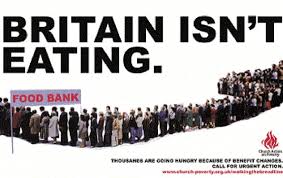 Last week, I had the privilege of being at Morecambe Bay Community Primary School. The school is a beacon of hope in this area. I found it extremely moving to walk round, with Siobhan Collingwood, the visionary and big-hearted headteacher and see the incredible love displayed by all staff towards the amazing children there. It made me realise again how centrally driven targets often make no sense for so many of our children and communities, especially when the base from which they start is so very different. Siobhan and her team are doing the most incredible job at caring holistically for the children here, dealing with complex behavioural issues with such kindness and brilliance that it brings tears to my eyes, even writing about it. Not only so, but the standard of teaching to then try and help these kids come up to the ‘required standards’, being creative with the resources available, is nothing short of miraculous. I would defy any school inspector to rate this school as anything else than ‘outstanding’.
Last week, I had the privilege of being at Morecambe Bay Community Primary School. The school is a beacon of hope in this area. I found it extremely moving to walk round, with Siobhan Collingwood, the visionary and big-hearted headteacher and see the incredible love displayed by all staff towards the amazing children there. It made me realise again how centrally driven targets often make no sense for so many of our children and communities, especially when the base from which they start is so very different. Siobhan and her team are doing the most incredible job at caring holistically for the children here, dealing with complex behavioural issues with such kindness and brilliance that it brings tears to my eyes, even writing about it. Not only so, but the standard of teaching to then try and help these kids come up to the ‘required standards’, being creative with the resources available, is nothing short of miraculous. I would defy any school inspector to rate this school as anything else than ‘outstanding’.
 Siobhan and I had a great discussion about the need for health, social care, the voluntary and faith sector, the police and education to work more closely together for the wellbeing of children and young people in our communities. This is already happening in part, through our health and wellbeing partnership and ‘better care together’, but there is far more we can do. We thought about what it might be like if we parachuted fresh into the community now and had to start from scratch, what we might do together…….
Siobhan and I had a great discussion about the need for health, social care, the voluntary and faith sector, the police and education to work more closely together for the wellbeing of children and young people in our communities. This is already happening in part, through our health and wellbeing partnership and ‘better care together’, but there is far more we can do. We thought about what it might be like if we parachuted fresh into the community now and had to start from scratch, what we might do together…….
We would start with stories – we already have many, from the conversations we’ve had in the community, but we want to really listen and be changed by the responses that we hear. We’re so grateful for the work of the ‘poverty truth commission’, helping us to do just that. We would also definitely pool our resources and prioritise key services that would not be taken away once the community begins to thrive, such as parenting classes, cooking lessons, early support services, a radically caring housing sector, preventative policing strategies (now emerging powerfully in partnership with our town and city councils), social care, mental health champions (something Siobhan has already been part of recruiting 150 locally!), children’s centres and adult education centres as a starter for 10. We would overlay this with the things that are working now – there is so much goodness happening and we don’t negate this. We want to ensure that we could see the health inequality gaps close.
In order to build on this idea of ‘healthy schools’, we would see kids being active every day – despite, limited grounds space, this school, like many others locally are running a mile a day. There is a great scheme here in which all the kids are learning to cook healthy, nutritious food, building vital life skills needed now and in the future. The breakfast and after school clubs are providing many healthy meals each day for the kids and throughout the summer holidays the schools cook – another woman with an incredibly big heart, opens the hall to feed families, who cannot afford to eat during the long breaks. A huge amount of work is being done around gender equality (have you seen the amazing documentary series “No more boys and girls: can our kids go gender free?” On BBCiplayer?). Kids are also given a huge dose of self esteem and know that they are loved and belong. If only the same level of caring support could be afforded through the transition to high school…..
Over the coming months, we hope to co-host some conversations with the community, not on our terms but shaped together with them. Siobhan spent years trying to think of great ideas to get the parents to come into school and interact with her. It wasn’t until the parents set up their own coffee morning in the old garage of the school playground, that she went to meet with them on their terms and started to build some staggeringly life-changing relationships. We know we are changed every time these kind of conversations happen and it blows our world view up so that we can collaborate effectively and co-design services with them. We want to share data with them about health and educational outcomes in order to create a passion for change and do some appreciative enquiry about all the great stuff already embedded in the community. Through these conversations, we want to connect people together and see a social movement for positive change.
 The future of Morecambe is bright and full of hope. The communities are strong, the place is beautiful and the people are amazing. Siobhan is just one of many incredible headteachers in this area, committed to one another and this geography through bonds of friendship. If a genuine partnership between health and education can develop here (and it’s part of my vision and ambition to see this done) then who knows what might be possible over the coming months and years?
The future of Morecambe is bright and full of hope. The communities are strong, the place is beautiful and the people are amazing. Siobhan is just one of many incredible headteachers in this area, committed to one another and this geography through bonds of friendship. If a genuine partnership between health and education can develop here (and it’s part of my vision and ambition to see this done) then who knows what might be possible over the coming months and years?
It is time for Morecambe to find its joy again. It has been the joke for too long, but soon it will become the place where the joke is found and everyone will want to know what we’re laughing about.
 We’ve got a problem (well 4 actually), when it comes to medical education! The first is this: Jeremy Hunt is promising loads of new places at medical school – I know this doesn’t sound like a problem, it sounds like a solution. But the truth is, once you actually do some number crunching, the new places won’t even account for the losses we will have due to retirement over the next 10 years, let alone account for the increased need there is in the system. So…..we’re still going to be short of doctors. Unfortunately – there isn’t a political appetite to increase these numbers further, and with our exit from the EU we’re genuinely facing an ongoing crisis.
We’ve got a problem (well 4 actually), when it comes to medical education! The first is this: Jeremy Hunt is promising loads of new places at medical school – I know this doesn’t sound like a problem, it sounds like a solution. But the truth is, once you actually do some number crunching, the new places won’t even account for the losses we will have due to retirement over the next 10 years, let alone account for the increased need there is in the system. So…..we’re still going to be short of doctors. Unfortunately – there isn’t a political appetite to increase these numbers further, and with our exit from the EU we’re genuinely facing an ongoing crisis. creative way, to work more smartly and differently, with a flexible workforce, but due to the pressures upon the system, there is little room for people to put much time or imagination into this and there is also a huge leap of faith involved. There is simply not the evidence base in place to support the leap we are asking GPs, in particular, to take in restructuring their practices and not replace GPs with GPs, but with combinations of paramedics, advanced practitioners, physician assistants, physics, mental health workers, health coaches and the like. However, the issue is that the system finds itself, like Indiana Jones, at the edge of a cliff, with no way back and the only thing for it is to step into the unknown and hope that God supplies the stepping stones…..Those in leadership positions are going to have be given space and grace to try some things, get it wrong and try again……One of the vital things that will be involved is proper engagement with the communities we serve. Clinicians and the general population need to have a better and deeper understanding of one another. There is a huge language void to be bridged and a collaboration that is needed in understanding how services can be more helpfully redesigned for the benefit of everybody. It also means where there are are difficult decisions to be made, there are no cloak and daggers or suspicion, but honest, open communication in the light of day that builds trust and partnership.
creative way, to work more smartly and differently, with a flexible workforce, but due to the pressures upon the system, there is little room for people to put much time or imagination into this and there is also a huge leap of faith involved. There is simply not the evidence base in place to support the leap we are asking GPs, in particular, to take in restructuring their practices and not replace GPs with GPs, but with combinations of paramedics, advanced practitioners, physician assistants, physics, mental health workers, health coaches and the like. However, the issue is that the system finds itself, like Indiana Jones, at the edge of a cliff, with no way back and the only thing for it is to step into the unknown and hope that God supplies the stepping stones…..Those in leadership positions are going to have be given space and grace to try some things, get it wrong and try again……One of the vital things that will be involved is proper engagement with the communities we serve. Clinicians and the general population need to have a better and deeper understanding of one another. There is a huge language void to be bridged and a collaboration that is needed in understanding how services can be more helpfully redesigned for the benefit of everybody. It also means where there are are difficult decisions to be made, there are no cloak and daggers or suspicion, but honest, open communication in the light of day that builds trust and partnership. Fourthly, our medical schools are delivering a curriculum, designed centrally but based on yesterdays NHS. There is not enough creative vision around the curriculum to build the right kind of future doctors. There is still far too much focus on illness and disease and no where near enough thought or teaching about wellness, healthy lifestyles, nutrition and non-pharmacological options. The role of the future doctor is much more population focused and digitally savvy. It is our medical schools more than anywhere else that carry the responsibility to ensure the future NHS is catered for. We need a radical shake up in medical education and some brave people to rewrite the curriculum that will enable medical schools to be more creative and engaging in helping to raise the doctors we need for the future.
Fourthly, our medical schools are delivering a curriculum, designed centrally but based on yesterdays NHS. There is not enough creative vision around the curriculum to build the right kind of future doctors. There is still far too much focus on illness and disease and no where near enough thought or teaching about wellness, healthy lifestyles, nutrition and non-pharmacological options. The role of the future doctor is much more population focused and digitally savvy. It is our medical schools more than anywhere else that carry the responsibility to ensure the future NHS is catered for. We need a radical shake up in medical education and some brave people to rewrite the curriculum that will enable medical schools to be more creative and engaging in helping to raise the doctors we need for the future. This situation exposes something far deeper than just an argument between Jeremy Hunt and the BMA and is far more important than discovering who has the strongest will power. Infact, the BMA have made a major error in targeting Jeremy Hunt so vindictively, because in the final analysis, this isn’t about Hunt at all. Jeremy Hunt can be replaced in a moment, and is likely to be succeeded by a far more robust
This situation exposes something far deeper than just an argument between Jeremy Hunt and the BMA and is far more important than discovering who has the strongest will power. Infact, the BMA have made a major error in targeting Jeremy Hunt so vindictively, because in the final analysis, this isn’t about Hunt at all. Jeremy Hunt can be replaced in a moment, and is likely to be succeeded by a far more robust 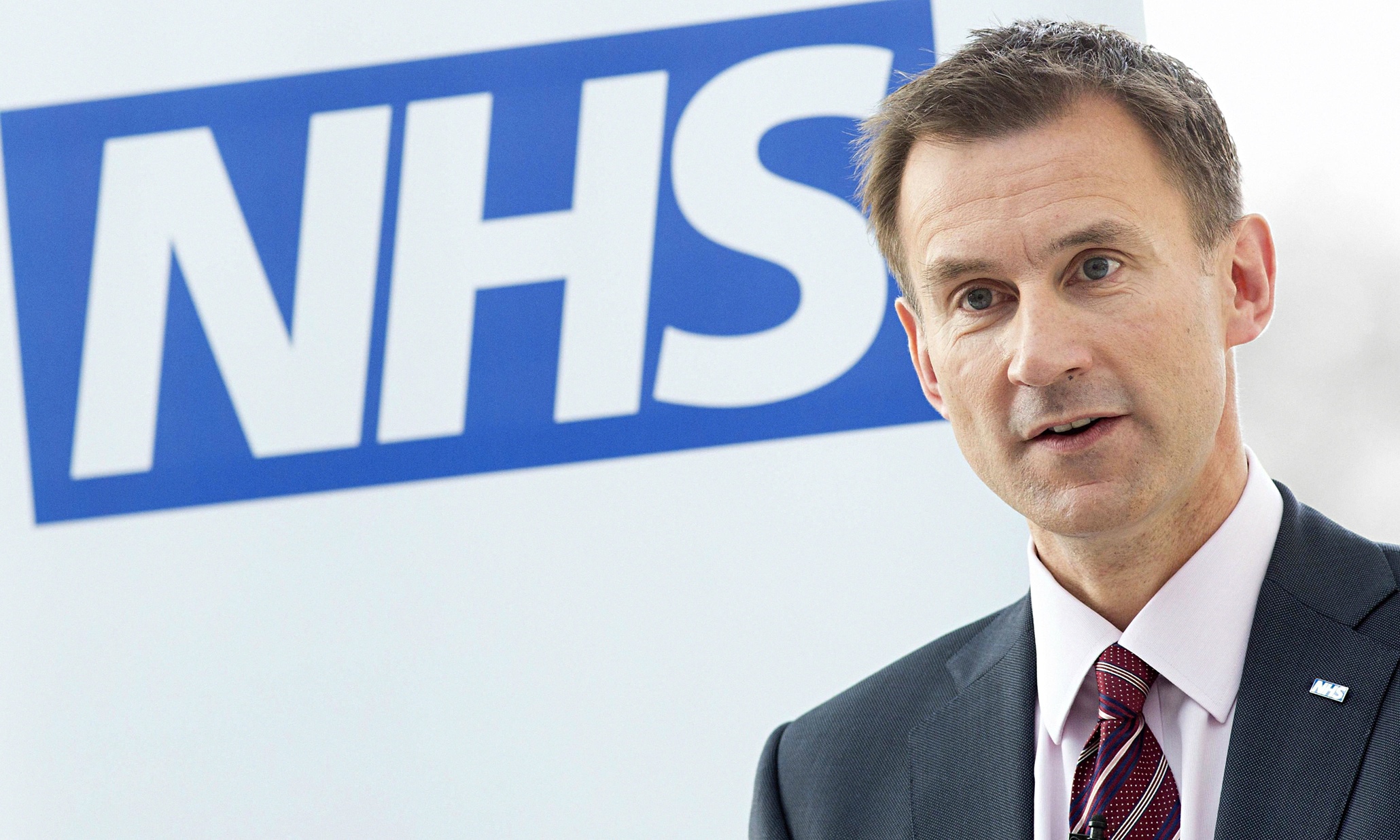 Boris Johnson, who will simply pound his fist more visciously. To make Hunt the scape goat narrows this debate to something far too insignificant and actually strengthens the government’s ability to do exactly as they please.
Boris Johnson, who will simply pound his fist more visciously. To make Hunt the scape goat narrows this debate to something far too insignificant and actually strengthens the government’s ability to do exactly as they please.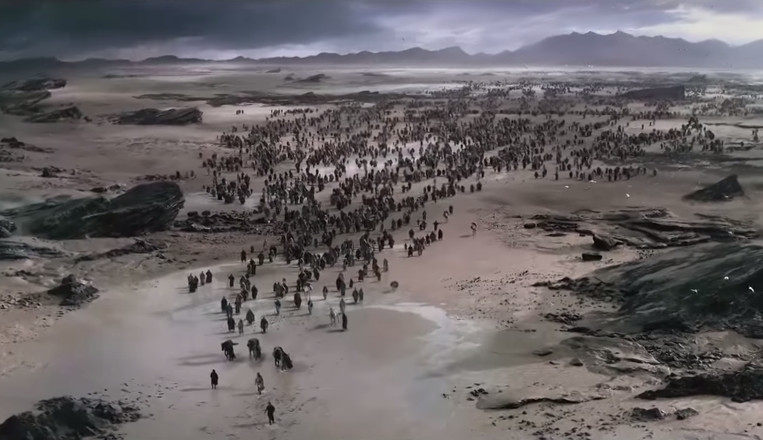 place, the goverment could instead have said to all the hospital trusts across the country what their hopes and intentions were and then waited to see if this was workable, in what way and how much it would cost. But you cannot simply act like Pharoah and expect the brick makers to make ever more bricks with less and less resource available – otherwise, you face an exodus!
place, the goverment could instead have said to all the hospital trusts across the country what their hopes and intentions were and then waited to see if this was workable, in what way and how much it would cost. But you cannot simply act like Pharoah and expect the brick makers to make ever more bricks with less and less resource available – otherwise, you face an exodus!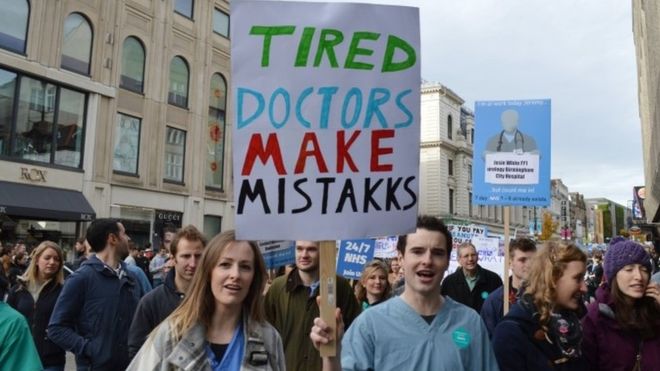 The system, to which we must all bow doesn’t care for the needs of the people who work within it. It will force them to submit. Why should doctors (many of whom work for less than the minimum wage, when on call) be allowed time to rest at weekends? Why can’t everybody have routine care through the weekend, just as from monday to friday (even though most of our top clinicians think we need better emergency care and not routine access)? Surely our economy needs this kind of health service? And actually, whilst we’re on it, isn’t it a waste of time, allowing teachers to have weekends off as well? Don’t we need our children to work harder, or at least be given some sort of babysitting service, so we can get more for our pound of flesh from their parents? If we are to have a 24/7 health service, why not a 24/7 education service? Our shops are already open practically 24/7. In this commercial world – shouldn’t everything else follow suit? No, no and NO!!
The system, to which we must all bow doesn’t care for the needs of the people who work within it. It will force them to submit. Why should doctors (many of whom work for less than the minimum wage, when on call) be allowed time to rest at weekends? Why can’t everybody have routine care through the weekend, just as from monday to friday (even though most of our top clinicians think we need better emergency care and not routine access)? Surely our economy needs this kind of health service? And actually, whilst we’re on it, isn’t it a waste of time, allowing teachers to have weekends off as well? Don’t we need our children to work harder, or at least be given some sort of babysitting service, so we can get more for our pound of flesh from their parents? If we are to have a 24/7 health service, why not a 24/7 education service? Our shops are already open practically 24/7. In this commercial world – shouldn’t everything else follow suit? No, no and NO!!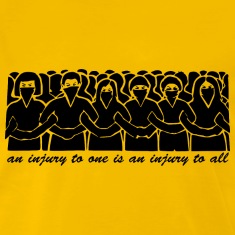 This is why we need a revolution of solidarity and resistance. We need a people movement who will stand together and be brave enough to say that there is a different way to see the world and a new way to live within it. Our naked life itself, although currently abused, can become for us our greatest power. Our naked life can expose the truth of just how abusive our systems have become. Our naked life, when combined with the indestructable force of kenotic love, becomes the very agent of change that we need.
This is why we need a revolution of solidarity and resistance. We need a people movement who will stand together and be brave enough to say that there is a different way to see the world and a new way to live within it. Our naked life itself, although currently abused, can become for us our greatest power. Our naked life can expose the truth of just how abusive our systems have become. Our naked life, when combined with the indestructable force of kenotic love, becomes the very agent of change that we need.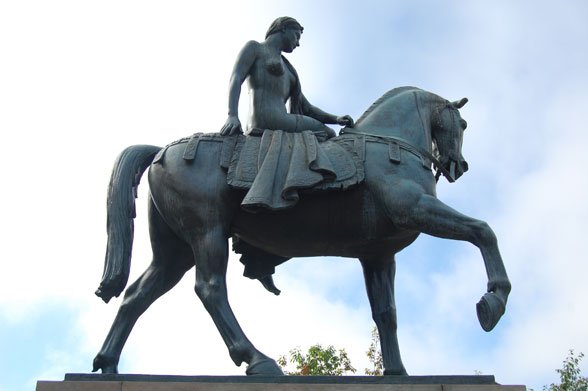 really demonstrate the power of naked life……how about naked marches?!! (I grew up in Coventry, and so the story of Lady Godiva is in my blood – nakedness overcame oppression once before!). Or maybe the staff of the NHS should all turn up to work with no clothes on?!! How about people stripping off at least to their underwear to expose both the fragility and the power of naked life?!
really demonstrate the power of naked life……how about naked marches?!! (I grew up in Coventry, and so the story of Lady Godiva is in my blood – nakedness overcame oppression once before!). Or maybe the staff of the NHS should all turn up to work with no clothes on?!! How about people stripping off at least to their underwear to expose both the fragility and the power of naked life?!



